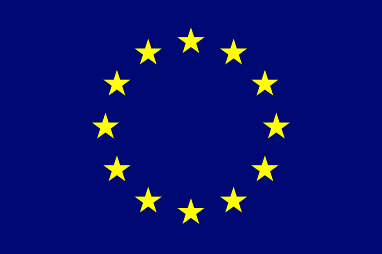Publications
Throughout the year, VOICE produces and disseminates key documents reflecting on humanitarian aid issues at the EU level and from an NGO perspective. They are addressed to decision-makers within the European institutions, at the National level, to NGO networks and other stakeholders of the humanitarian community, as well as to the VOICE members. Some documents are produced by the VOICE Secretariat with the support of VOICE members while others are publications from members and other key stakeholders in the humanitarian sector.
Please note that members-only documents will not be visible unless you are logged in.
-
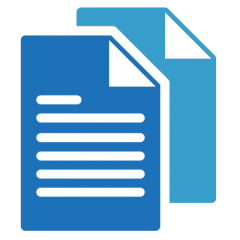
53 NGOs call for full and equitable funding to address root causes of the crisis in Yemen
23 February 2023Members' publicationsThe signatories of this joint statement urge donors to respond to the urgent need to address Yemen’s complex, large-scale, and protracted crisis by committing to the required funding at the High-Level Pledging Event. -
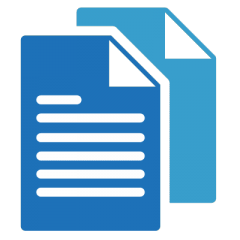
Developing a Disaster Communication Plan: 8 Steps - Tulane University
16 February 2023This guide by Tulane University provides detailed insights and resources on how to develop a disaster communication plan in 8 steps. -
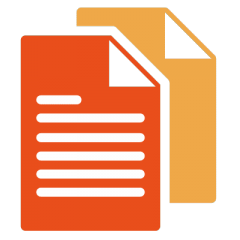
“We need women to help women”: Afghan women cut off from aid following Taliban ban on female NGO workers - Save the Children International
16 February 2023Members' publicationsThe article by Save the Children provides an overview of the current situation in Afghanistan, two months after the ban on female humanitarian workers. -
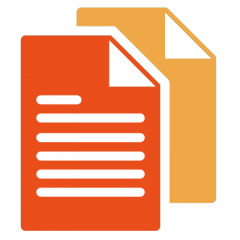
35 INGO and Syrian NGOs demanding unfettered access and massive scale-up of humanitarian response
14 February 2023Members' publicationsNGOs working in Syria, many of them among our members, have called for an urgent scaleup in support and for immediate action to be taken to secure humanitarian assistance to the populations affected by the earthquake in Syria. -
VOICE Key Highlights: Humanitarian principles under threat? The Brussels launch of the SOHS ALNAP report
09 February 2023VOICE event reportsThe document summarises the key takeaways of the event "Principles under threat?" the Brussels launch of the State of the Humanitarian System report by ALNAP on November 2022. -
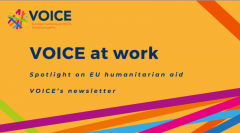
VOICE at Work 3 - Spotlight on EU Humanitarian Aid
09 February 2023VOICE at workVOICE at Work 3
Table of contents
-European Humanitarian Forum 2023
-Türkiye - Syria earthquake: VOICE members providing life-saving aid
-Engaging with the Swedish Presidency of the Council of the EU
-EU’s humanitarian budget : More support to people in need
-COP27: wins and losses from VOICE members’ perspective
-NGOs call for the release of Olivier Vandecasteele
-VOICE out loud 34 - Fighting against hunger: a humanitarian lens
-Humanitarian principles under threat? Key highlights of the Brussels launch of the State of the Humanitarian System Report 2022
-Humming Word: A humanitarian term explained
-VOICE Members' publications
-Other relevant Humanitarian Aid publications
-Events and webinars -
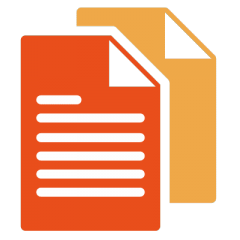
Deadly earthquake leaves thousands of people in Türkiye and Syria vulnerable amid a harsh winter - CARE International
08 February 2023Members' publicationsThis press release by CARE International explains how they are assessing the situation to put in place an early response after the earthquake that shocked Türkiye and Syria on 6 February. -
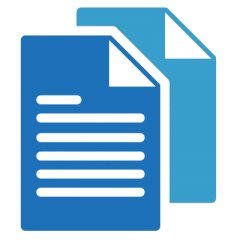
Aid agencies call for immediate support for those affected by 7.7 magnitude earthquake that struck Syria and Türkiye
08 February 2023This press release, issued by several networks and NGOs calls for immediate and international support to provide assistance after the earthquake that shocked Syria and Türkiye on 6 February. -
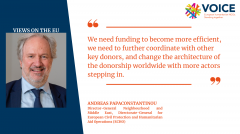
Views on the EU - Interview with Andreas Papaconstantinou (DG ECHO)
01 February 2023VOICE out loudIn this interview, Andreas Papaconstantinou, the Director-General of Neighbourhood and Middle East at DG ECHO, gave an overview of the current position of the EU and DG ECHO regarding the current humanitarian situation. -
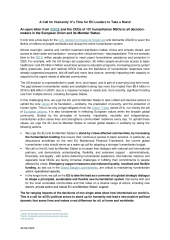
-
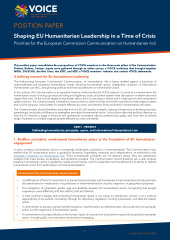
VOICE Position Paper on the EC Communication for Humanitarian Action
01 February 2023 -
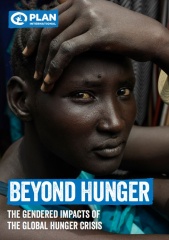
Beyond Hunger: the gendered impact of the global hunger crisis - Plan International
30 January 2023Members' publicationsThe report from Plan International presents new evidence on the gendered impacts of the current global hunger crisis from eight of the countries most affected. -
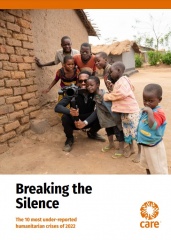
Breaking the Silence: the 10 most under-reported humanitarian crises of 2022 - CARE International
30 January 2023Members' publicationsThe report from CARE shines the light on the ten humanitarian crises that received the least media attention in 2022. All of which, for the first time, are in Africa. -
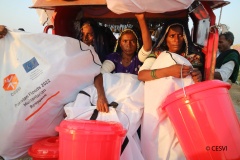
Floods in Pakistan: CESVI’s intervention in the disaster symbol of the climate crisis
26 January 2023VOICE out loudIn this article, CESVI explains the intervention they are carrying out in Pakistan towards assisting affected populations and also implementing a capacity-building and anticipatory approach. -
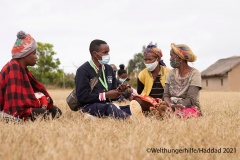
Localised anticipatory humanitarian action to minimise effects of climate change and reduce the risk of food insecurity - Welthungerhilfe
24 January 2023VOICE out loudIn this article, Welthungerhilfe explains how Forecast-based Action (FbA) is key to preventing the negative impacts of extreme weather events, and the consequent human suffering. -
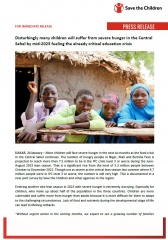
Disturbingly many children will suffer from severe hunger in the Central Sahel by mid-2023 fueling the already critical education crisis - Save the Children
24 January 2023Members' publicationsThe press release by Save the Children analyses how the current food security crisis in the Central Sahel is impacting children's education and how the situation is projected to evolve during 2023. -
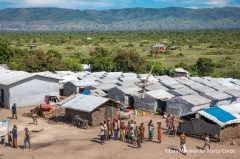
Conflict and hunger in eastern DR Congo: building resilience within compounding crises – Mercy Corps
19 January 2023VOICE out loudThe article by Mercy Corps analyses the humanitarian crisis in the Democratic Republic of Congo (DRC), one of the most complex and long-standing ones in the world, from the point of view of hunger and conflict. -
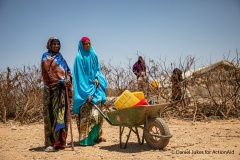
Hunger is a feminist issue - Alianza por la Solidaridad (ActionAid Spain)
17 January 2023VOICE out loudIn this article, Alianza por la Solidaridad explores the role of women and girls in the fight against hunger. -
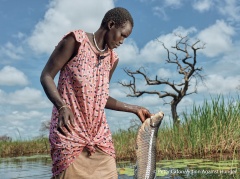
Hungry for a better future: Political willingness can change climate-induced hunger and malnutrition - Action Against Hunger Germany
12 January 2023VOICE out loudAction Against Hunger Germany explains that EU member states and other industrialised countries must drastically reduce their emissions to keep climate change from escalating and should transform their COP27 commitments into actions. -
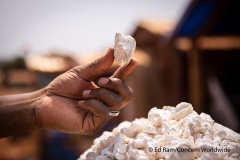
It’s time to break the global hunger paradigm - Concern Worldwide
10 January 2023VOICE out loudThe article by Concern Worldwide explains how conflict is the main driver of food insecurity and the vital importance of political will in addressing both. -
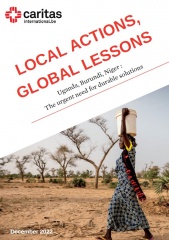
Local Actions, Global Lessons – Uganda, Burundi, Niger: The urgent need for durable solutions - Caritas International Belgium
22 December 2022Members' publicationsThis publication explores the policy lessons of the Caritas network’s engagements in fragile contexts. This collection of articles focuses on the reception of refugees in Uganda, the situation of returnees in Burundi and the links between climate and food insecurity in Niger. -
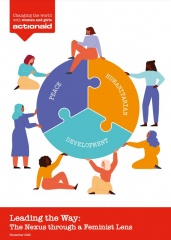
Leading the Way: The Nexus through a Feminist Lens - ActionAid UK
19 December 2022Members' publicationsThe report from ActionAid UK gathers the experiences of women's rights and women-led organisations to explore how they implement the Nexus approach at the local level as first responders to emergencies. -
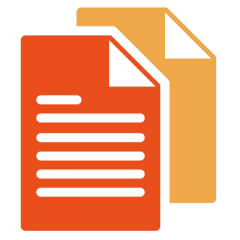
Concern statement in response to Somalia crisis report by the IPC - Concern Worldwide
16 December 2022Members' publicationsIn this press release, Concern Worldwide evidences the worsening food crisis in Somalia and urgently calls for more efforts and funds to alleviate the suffering caused by the current humanitarian crisis. -
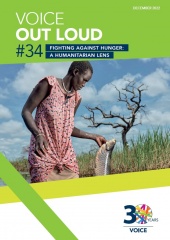
VOICE out loud 34 - Fighting against hunger: a humanitarian lens
15 December 2022VOICE out loudThe new edition of the VOICE out loud delves into the global hunger crisis which has reached a record high in recent years due to the combined factors of increasing conflicts, climate change and the economic repercussions of the COVID-19 pandemic and the war in Ukraine. Also, VOICE members call for prompt and bold actions to fight hunger and reflect on how humanitarian efforts contribute to addressing the food crisis, at the time that they highlight some of the aspects that would help break the hunger pattern and its worsening condition.
-
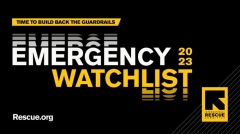
Somalia, Ethiopia and Afghanistan top IRC’s Emergency Watchlist 2023 - IRC Press release
14 December 2022Members' publicationsThe annual Emergency Watchlist from the International Rescue Committee (IRC) reveals the record-breaking levels of humanitarian need in 2022 and lists the countries most at risk of deteriorating humanitarian crises in 2023.

